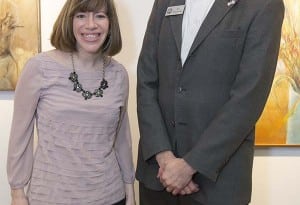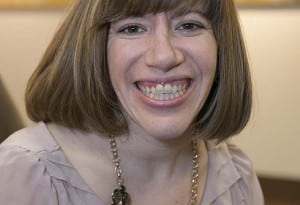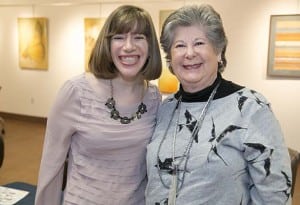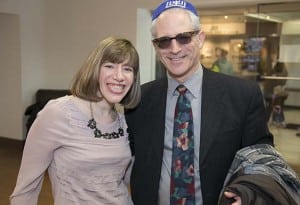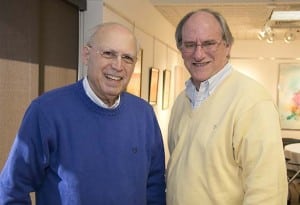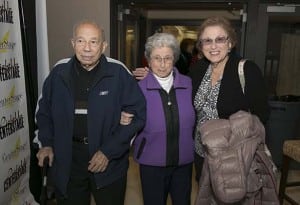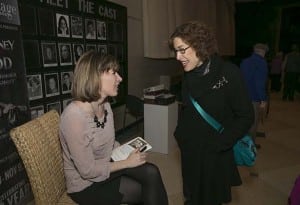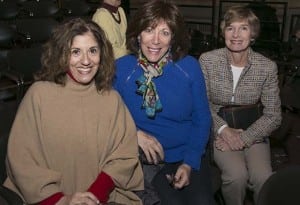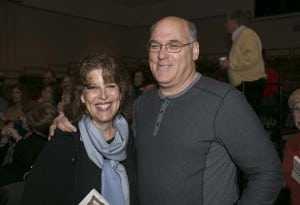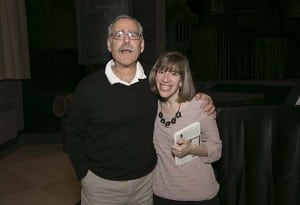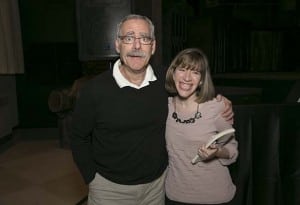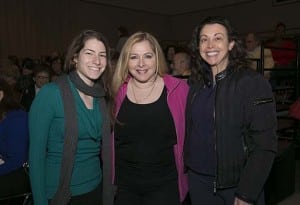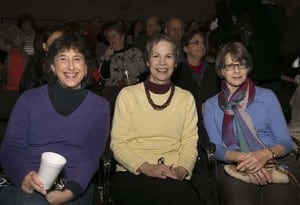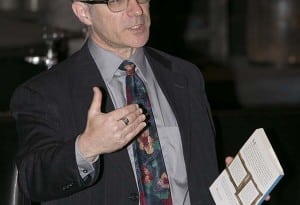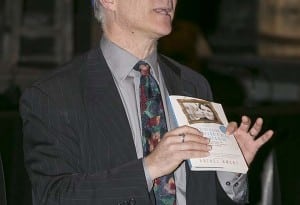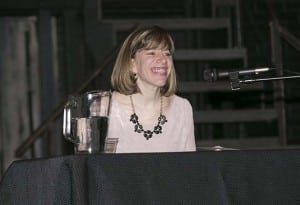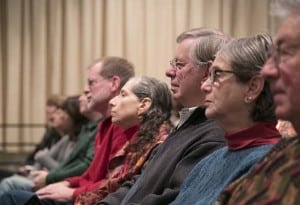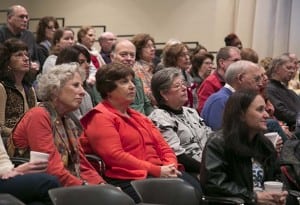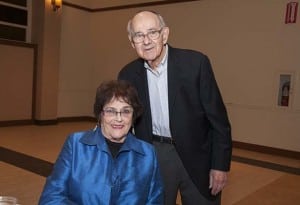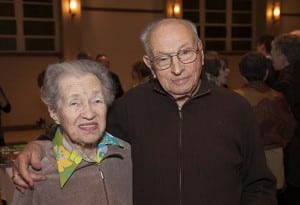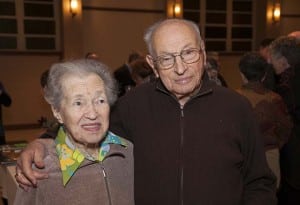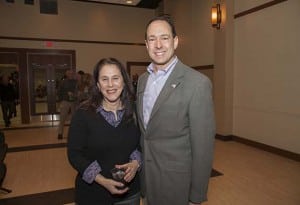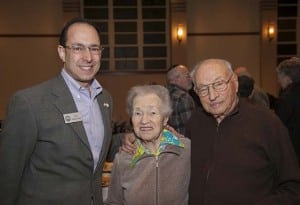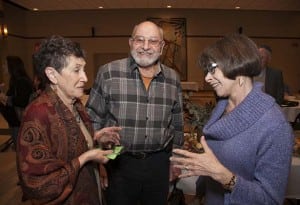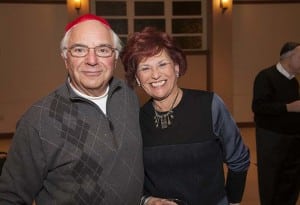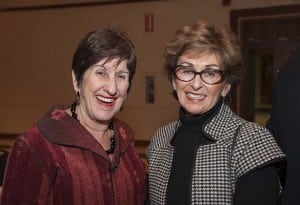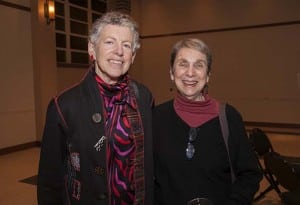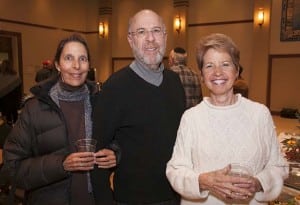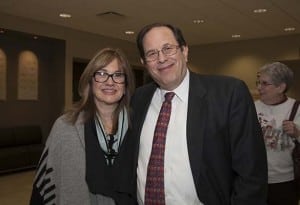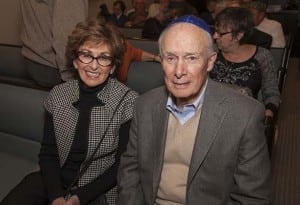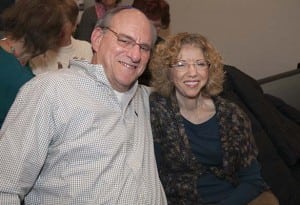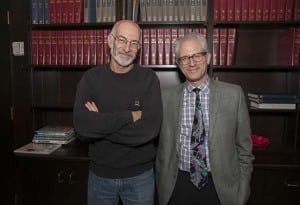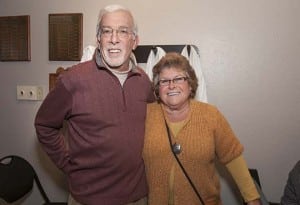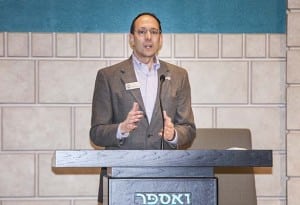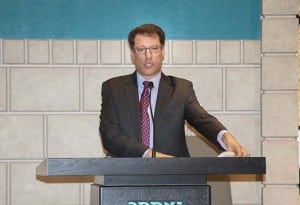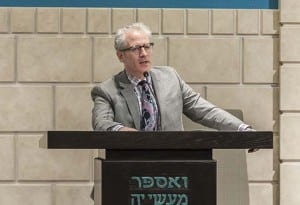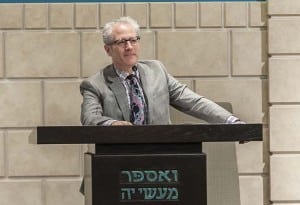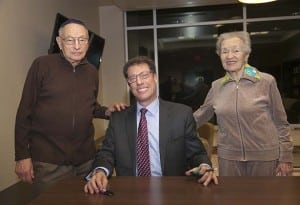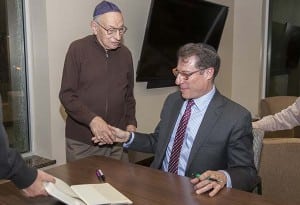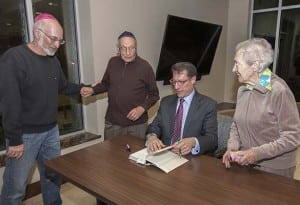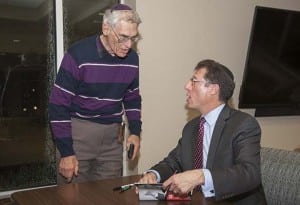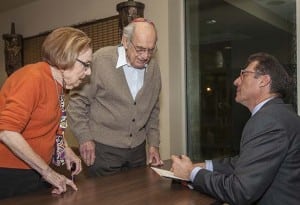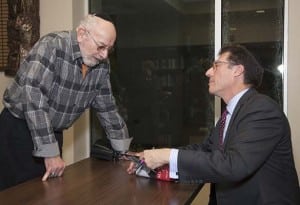The Louisville Jewish/Israeli Author Series began with two successful programs in November and will continue with four more events. Rachel Ament spoke at the Jewish Community Center on Sunday, November 2, about The Jewish Daughter Diaries; and Daniel Gordis spoke at Adath Jeshurun on Sunday, November 16, about Menachem Begin: The Battle for Israel’s Soul.
On Sunday, December 7, Ari Shavit, the author of My Promised Land will speak at Adath Jeshurun at 7 p.m. This discussion is sponsored by Adath Jeshurun and co-sponsored by Temple Shalom.
On Friday, January 23, at the Jewish Community Center, there will be Kabbalat Shabbat services at 5:30 p.m. followed by dinner and discussion with Rabbi Danya Ruttenberg, author of Holy Frustration and Radical Amazement: Parenting as a Spiritual Discussion. The dinner is $18 for adults and $10 for children, and babysitting is available. It is sponsored by the JCC and Keneseth Israel.
The following day, Rabbi Ruttenberg will be the guest and featured speaker at Keneseth Israel for the Shabbat service and kiddush luncheon starting at 9:30 a.m. This program is sponsored by Keneseth Israel.
On Thursday and Friday, February 12 and 13, the University of Louisville Jewish Studies Department and The Temple are teaming up to bring Sayed Kashua, author of The Foreign Mother Tongue: Living and Writing as a Palestinian in Israel, to Louisville. On Thursday, he will speak in the Chao Auditorium in the University of Louisville’s Ekstrom Library at 3 p.m. and on Friday, he will speak at The Temple during Kabbalat Shabbat services at 7 p.m.
The Louisville Jewish/Israeli Authors Series is made possible by a generous grant from the Jewish Heritage Fund for Excellence.
Books, provided by Carmichael’s Bookstores, will be available for purchase at each event.
Rachel Ament
Over 75 people came to the Jewish Community to hear Louisville native Rachel Ament speak about her book, The Jewish Daughter Diaries. “It feels like a bat mitzvah reunion,” she quipped, noting that she knew 50-60 percent of the people in attendance.
In graduate school, Ament said, she realized that everyone stories about their mothers and that was something worth sharing. Jewish women, she said should be celebrating their relationships with their mothers and not afraid to laugh at themselves.
In her book, a collection of essays by a variety of Jewish women, many of them well known, explores stereotypes of Jewish mothers – suffering, overfeeding, worrying, loving their children unconditionally and more.
She read aloud from the chapter on her own mother and recounted a few anecdotes.
It took Ament three to four years to gather the essays before she got the contract on her book, and then four rounds of edits before it made it to print.
Currently, she is writing a novel and a TV pilot. She also works as a social media writer for PNC Bank.
Daniel Gordis
Energetic and entertaining, Daniel Gordis kept the crowd in Adath Jeshurun’s chapel mesmerized for over an hour and a half on November 16, as he presented a portrait of former Israeli Prime Minister Begin that challenged much of how Begin is perceived.
Gordis stated Winston Churchill once said, “History will be kind to me because I intend to write about it.” In Israel, Gordis posited, history was kind to David Ben Gurion because he wrote it; and as Ben Gurion and Begin were often at odds, Israeli history is not always kind to Begin.
Born in Brest, into the renowned Soleveichik rabbinical family, Gordis pointed out that the midwife who assisted in his delivery was Ariel Sharon’s grandmother.
Begin was a lifelong Zionist and a disciple of Ze’ev Jabotinsky, founder of the nationalist Revisionist Zionist movement and was a leader in its Betar youth division. Gordis said that when the young Begin heard Jabotinsky speak, the future leader of Israel said “the speech sanctified him and he found his life’s work.”
He fled to Russia and was arrested by the NKVD, imprisoned and tortured, which he documented in his memoir, White Nights. The charge against Begin was being a Zionist, Gordis said, and Begin wrote that he admitted being a Zionist, but he could not confess to being a Zionist, as his jailors demanded, because to confess means pleading guilty to a crime and being a Zionist is not a crime.
During World War II, Begin worked hard to save Jews. When Polish Jews were under attack, but Hungarian Jews had not yet been touched, Begin said to save the Hungarian Jews, the Jews in Palestine needed to attack the British rather than joining them in the fight against the Nazis.
Why attack the British? To pressure them to allow Jewish immigration into Palestine so the endangered population would have a safe haven to which they could flee.
Begin has sometimes been called a terrorist for his activities in the Irgun before Israel became a state. In one instance, history said he was responsible for blowing up the King David Hotel and killing 90 people.
The other side of the story is the King David Hotel building was being used to store evidence that could be used later to hang people for their activities to create a Jewish state. Begin contacted the authorities at the hotel 20 minutes before the building was to be destroyed and warned them to leave. His warnings were ignored and that is why people died.
Then the British began flogging Jews as punishment. Begin challenged the British saying flogging was degrading. He threatened to flog British soldiers if the British flogged any more Jews. Again the British ignored him, and when they flogged two more Jews, Begin flogged two British soldiers. The British never flogged another Jew.
Next the British began hanging Jews who worked toward an independent Jewish State. Begin again challenged them, threatening to mete out the same punishment to British officers. The British didn’t relent, issuing death sentences to two Jews, but they were more cautious and their officers no longer went out in uniform and only in groups of three or more.
Finally, Begin’s Irgun forces captured two British sergeants and declared that they would execute them should the British execute the Jews. The sergeants were of such low rank that the British went ahead with their scheduled hangings.
Now Begin was faced with a dilemma because it turned out that one of the sergeants was Jewish. Feeling that he didn’t have a choice because the British would never believe him in the future if he didn’t keep his word, Begin had his prisoners hung. He was not happy about it, but the British stopped hanging Jews.
He fought the British determinedly, but stopped fighting and dissolved the Irgun the moment Israel became a state.
Preserving Jewish lives and upholding Jewish values, Gordis said, was always Begin’s prime focus, and he cited another incident to back up his point.
During his tenure as prime minister, there was a group of Vietnamese boat people adrift in the South China Sea. Vessels from many nations passed them by and refused to pick them up or help them. When an Israeli vessel contacted Begin and asked what to do, the prime minister had them brought to Israel.
Jews take care of Jews, he said, but they also remember that they can’t oppress the stranger. The Jewish thing to do was to rescue these people and allow them to become citizens of Israel.
Begin, Gordis said, made peace with Egypt by sending a message, “Let’s end this,” to Anwar Sadat through Romanian president Nicolae Ceausescu; and he never claimed the money from the Nobel Peace Prize. Instead, the money is used to provide scholarships.
He ordered the bombing of the Iraqi nuclear reactor and was widely vilified, yet later, the truth of his claims and the wisdom of his actions was borne out.
When the Israeli Supreme Court ruled that Elon Morei was illegally built on Arab land, he supported the Court’s decision.
His greatest failure was the Lebanon War, and again Gordis argued, that history did not treat Begin fairly.
Gordis concluded that Israel exists today because of the efforts of both Ben Gurion and Begin.
RACHEL AMENT LECTURE PHOTO GALLERY
DANIEL GORDIS LECTURE PHOTO GALLERY





